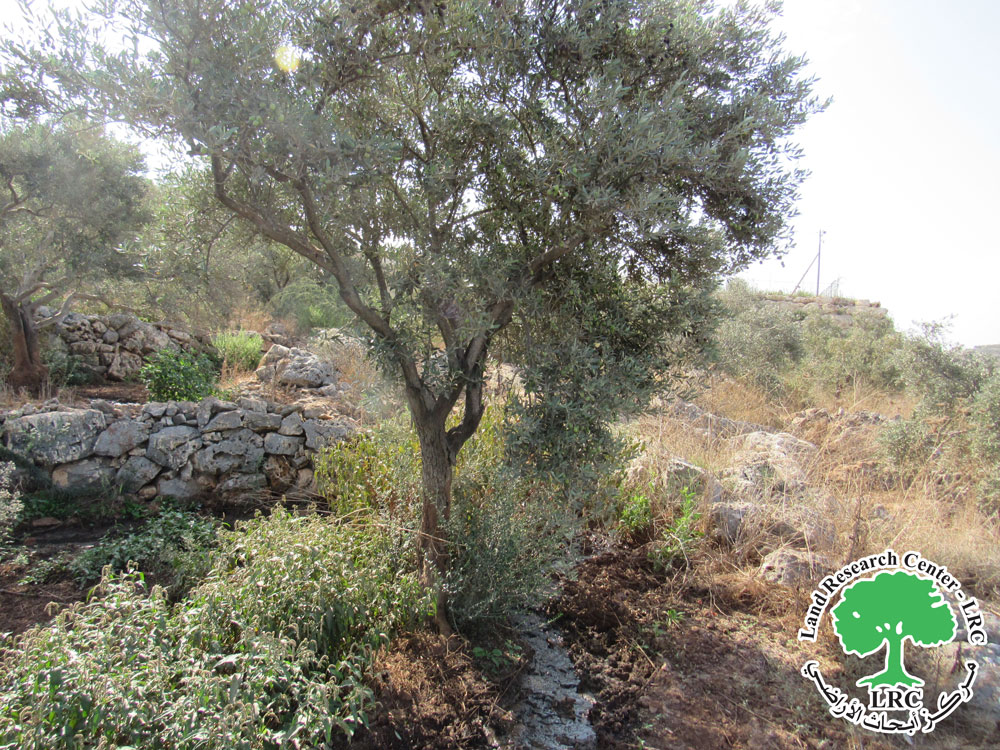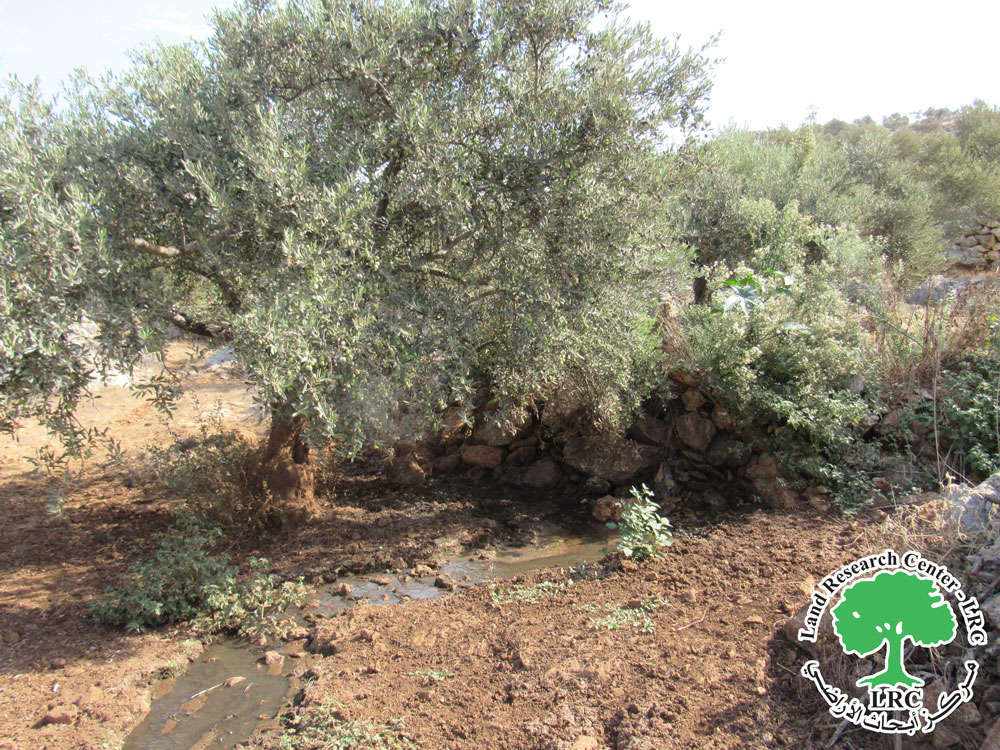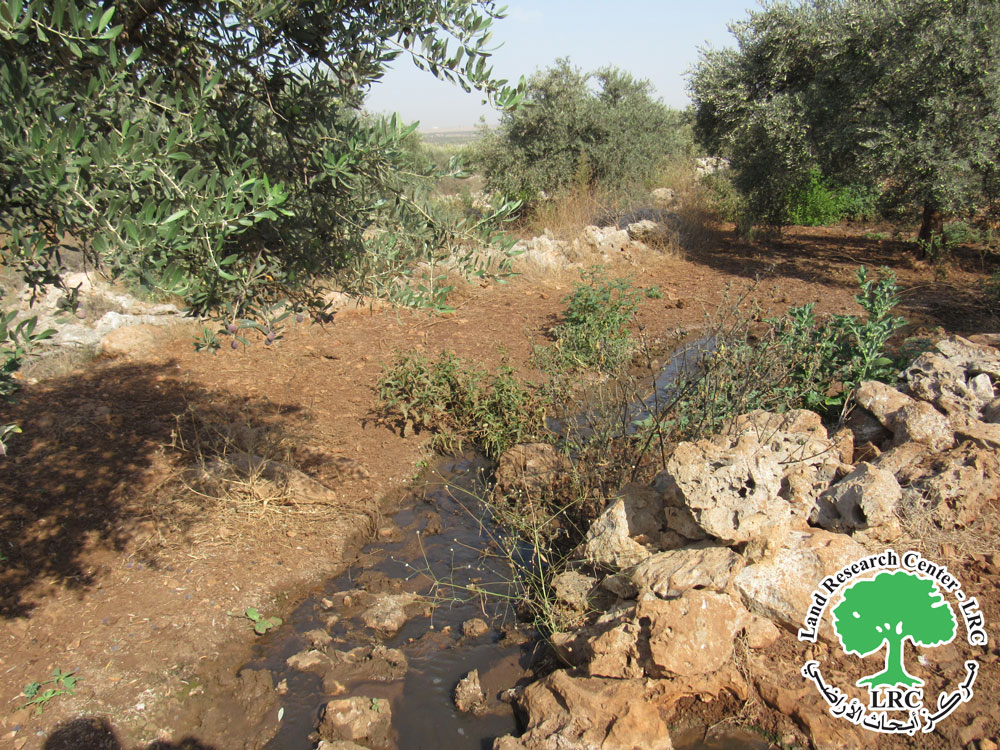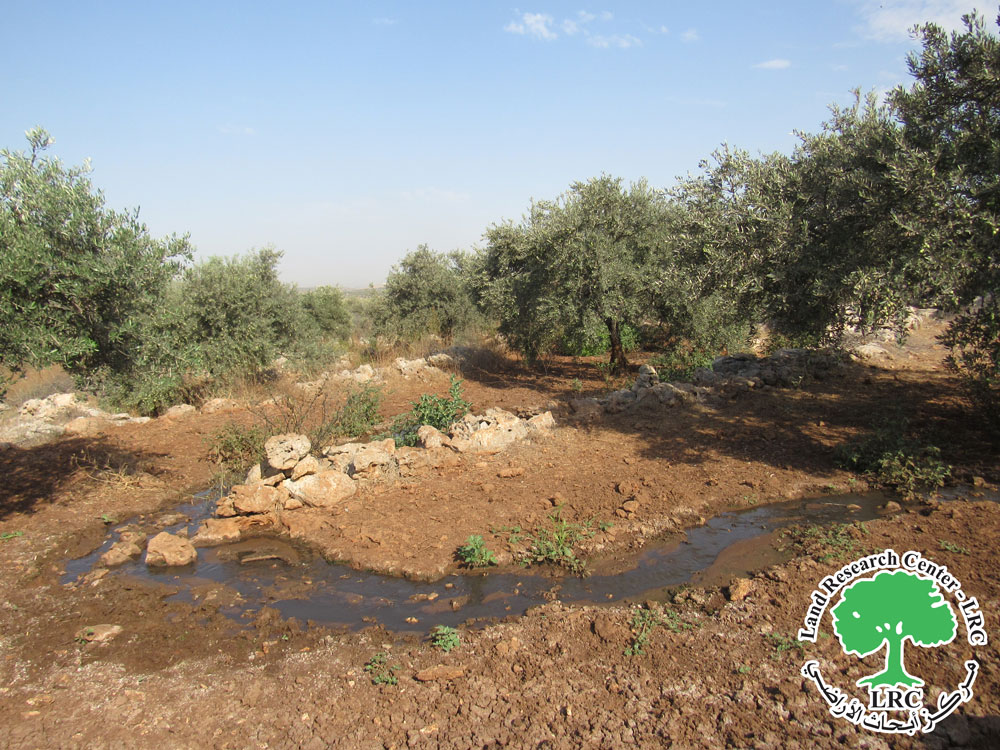To Sabotage the Olive Harvest Season! Settlers from the "Eli" settlement flood olive fields with sewage water in the village of Qaryut, Nablus Governorate.
Violation: Flooding olive trees and soil with contaminated water.
Location: Qaryut village, located south of Nablus Governorate.
Date of Violation: November 1, 2024.
Perpetrators: The "Eli" settlement.
Affected Party: Farmer Mahmoud Samara Hassan Kassab.
Description:
During the current olive harvest season in 2024, settlers have intensified their attacks, directly targeting olive trees to harm farmers, discourage them from tending to their lands, and deprive them of benefiting from the harvest.
The "Eli" settlement is among the most destructive to olive farmers. Settlers deliberately discharged sewage water from the settlement onto olive fields south of Qaryut village. This action resulted in the flooding of 14 olive trees with sewage water, rendering them completely damaged and unsuitable for harvest.
The affected trees belong to farmer Mahmoud Samara Hassan Kassab from Qaryut village, who supports a family of (4), including (2) adult females.
The affected farmer reported to the LRC researcher the following:
"I own a four-dunum plot of land planted with olive trees. Over the past years, I have harvested olives from this land, producing no less than 8 tins of olive oil annually. The land is located just 400 meters away from the 'Eli' settlement, which was established illegally on village lands.
Three years ago, I obtained a ruling from the Israeli Supreme Court affirming my right to the land. The ruling, supported by the 'Yesh Din' organization, included an order to prevent the discharge of sewage onto my land. However, in reality, three years later, the settlers have resumed pumping sewage water, causing severe damage to the trees.
There are now 14 olive trees, each 30 years old, that I can neither access nor harvest olives from due to the extent of the damage."
It is worth noting that the "Eli" settlement, established on the lands of the village of Qaryut, has been and continues to be the primary source of suffering for farmers in the area. Over the past five years alone, numerous violations have been documented by the field research team of the Land Research Center. These violations include settlers burning agricultural lands, damaging agricultural properties, and destroying trees—all with the aim of undermining the resilience and determination of farmers in the region.
Pumping Contaminated Water onto Agricultural Lands: A Gross Violation Against the Environment
Settlers, with the protection of the occupation army, are deliberately working to disrupt the 2024 olive harvest season. This systematic plan mirrors similar actions in 2023, when occupation forces prevented farmers from accessing thousands of dunams of agricultural land. On October 15, 2024, the commander of the occupation forces issued approximately 20 orders to close areas in the Nablus Governorate alone, affecting access to and use of 13,600 dunams of agricultural land specifically during the olive harvest season. These measures result in the loss of the harvest and the inability of farmers to benefit from their crops.
These orders coincide with repeated settler assaults on olive harvesters, including attacking individuals, damaging property, and even stealing the olive harvest itself.
Additionally, settlers have employed another method of violation against Palestinian olive trees: pumping contaminated water onto agricultural lands. This reckless action inflicts severe damage on crops, soil, and the environment. In Qaryut village, polluted water has formed ponds, damaging olive trees by contaminating their trunks and the surrounding soil. Farmers face immense difficulties accessing their lands or moving within them due to the spread of polluted water, making it nearly impossible to harvest their crops. As a result, the olive harvest season is likely to fail, and farmer Kassab will lose the yield he awaited all year.
The contaminated water not only destroys the trees but also causes significant environmental harm. It leaves a foul odor, pollutes the soil, and attracts insects, mosquitoes, and flies to the area.
According to the Israeli Violations Monitoring Department at the Land Research Center, 195 dunams are damaged annually due to polluted water discharged from Israeli settlements, including (Eli, Alon Moreh, Itamar, Shafei Shomron, Shilo, Shefut Rachel, Adei Ad, Givat Ronen, and Bracha). This contamination continuously harms 1,090 trees, including 800 olive trees.
Introduction to the Village of Qaryut:(2)
Qaryut is located southeast of the city of Nablus, approximately 20 km away. The village spans an area of 8,471 dunams, of which 312 dunams are designated for residential buildings. The population of the village is 2,321 residents. However, the Israeli occupation has confiscated 1,332 dunams of Qaryut’s land for the benefit of the following settlements:
Shilo Settlement: Confiscated approximately 779 dunams of Qaryut’s land, with a built-up area of 1,347 dunams. It was established in 1978.
Eli Settlement: Confiscated approximately 553 dunams of Qaryut’s land, with a built-up area of 3,360 dunams. It was established in 1984.
Sources:
- [1] GIS Unit – LRC, based on military orders issued on October 15, 2024.
- [2] Land Research Center.
- مشروع: حماية الحقوق البيئية الفلسطينية في مناطق "ج" SPERAC IV - GFFO
Disclaimer: The views and opinions expressed in this report are those of Land Research Center and do not necessarily reflect the views or positions of the project donor; the Norwegian Refugee Council.
إخلاء المسؤولية: الآراء ووجهات النظر الواردة في هذا التقرير هي آراء ووجهات نظر مركز أبحاث الأراضي ولا تعكس بالضرورة وجهات نظر أو مواقف الجهة المانحة للمشروع؛ المجلس النرويجي. للاجئين





